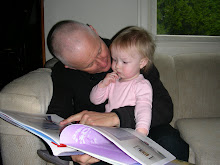I was challenged today to ponder what it is I think I am doing when, as a priest, I stand before the worshiping congregation after the confession and pronounce absolution.
To begin to grasp the function of absolution in Christian liturgy we have to understand that Christianity is an embodied religion. Christians believe that we learn the deepest lessons of life in our bodies not simply in our minds. We learn and grow through seeing, hearing, touching, tasting, and smelling.
In the eucharist, using all our senses, we re-embody the drama of Christ’s death and resurrection. We experience in bread and wine, the present action of God in Christ.
When as a priest I stand before the community and pronounce,
Almighty God have mercy upon you,
pardon and deliver you from all your sins,
I am using sound and sign to embody in the present, the action of God’s Spirit in the heart of each person in worship. That which is signified in my action, in some mysterious way takes place in the heart that responds with faith.
It is not just that something happened long ago. God’s grace and forgiveness continue to happen mediated through words I am appointed to speak. As Christ is mystically and mysteriously present in bread and wine, so he is actively present in sound and sign as I speak words of absolution and mark the community with the redeeming sign of the cross.
The priest is not issuing a theological statement in the hope that the congregation will grasp the concept of forgiveness and be transformed by this idea. The priest is inviting us into the transforming mystery of grace and forgiveness.
In utter fear and trembling, with the deepest humility possible, the priest gives voice to the deep mystery of God. Then, joined in mystical communion with the confessing community, the chemistry of God’s grace is released again in the fresh and immediate work of God’s Spirit.

5 comments:
what relationship does your ordained role have to the priesthood of all?
Rob,
That is a great question! I am intrigued that it was stimulated by this post.
I think your question is similiar to the question I was trying to address in my original post - what is the relationship of my "ordained role" to the work of God?
And I think the answers are similar too. I think "the ordained role" is to be a signpost to, perhaps even an embodiment of, the action, presence, reality of God. Similarly, in relation to "the priesthood of all" the "ordained role" is to represent that shared priesthood embodying the community to itself.
This has nothing to do with the character of the person fulfilling the ordained role. It is simply a reflection of the fact that the community has chosen and set aside a particular person to fulfill a specific role in the life of the community. When everyone takes their part (all priests and ordained priest) some mysterious action of God unfolds, making present that which was ultimately accomplished in Christ.
This is all terribly difficult to express. We are treading in the arena of mystery. And mystery is always difficult to articulate.
Hope this moves us a little farther towards opening to the depths of the mysterious truth of God's work among us.
Thanks Christopher - your answer is a good one. Küng in his book on the church makes it clear that the sacraments are celebrated by those set apart for ordination mostly for the purpose of due order. He is clear that there is no Biblical warrant for a separation of priest from the people of God - and in this comment you have combined both due order and unity of people and priesthood. Best answer I have ever heard :)
I have a question on my blog I would be interested in your answer on - hereOr better yet come to Ian Galliford's house on St Charles St for the Bible study tonight - Travis will be there among others.
Wow Ian Galliford! He was the wonderful godly organist at St. Barnabas when I was there as a child. How great that he is still connected, thinking, growing, and learning with you all.
Thanks for the lovely invitation. Sadly this evening is already taken.
Christopher - I will convey your greetings to the meeting and to Ian in particular. Thanks for your comment. It has informed my confidence.
Post a Comment